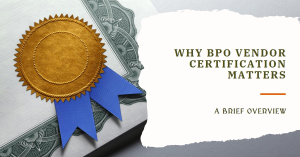Estimated reading time: 7 minutes
Key Takeaways
- Outsourced ecommerce empowers businesses to scale quickly without heavy upfront costs.
- Partnering with experts delivers cost optimisation and streamlined operations.
- Access to a global talent pool drives innovation and competitive advantage.
- Robust 3PL networks ensure *rapid* and reliable product fulfilment.
- Focusing on core activities lets brands cultivate stronger identities and customer loyalty.
Table of Contents
Understanding Outsourced Ecommerce
In today’s dynamic digital arena, ecommerce outsourcing has evolved from a mere trend into a strategic imperative. It involves delegating critical online business functions—such as logistics, customer service, and digital marketing—to specialised third-party providers, enabling brands to tap into advanced capabilities without heavy capital expenditure.
Unlike traditional in-house operations, outsourced models offer unparalleled flexibility and scalability, letting organisations swiftly adapt to seasonal fluctuations and market shifts.
Key Benefits of Outsourced Ecommerce
Cost Optimisation
Outsourcing slashes overhead by eliminating the need for extensive staffing, infrastructure, and tech investments. Predictable pricing structures allow companies to reinvest savings into innovation and marketing.
Scalability
Flexibility is king. Businesses can effortlessly scale up during peak seasons or contract in slower periods, maintaining efficiency without compromising customer experience.
Access to Global Talent Pool
From multilingual support teams to seasoned digital marketing and SEO experts, outsourcing opens doors to diverse skill sets that accelerate growth and foster innovation.
Focus on Core Activities
By handing over operational minutiae, companies can double-down on product development, strategic planning, and brand storytelling—elements that truly differentiate in a crowded marketplace.
Essential Components of Outsourced Services
- Ecommerce Fulfilment: Ensures accurate, on-time deliveries and boosts customer satisfaction.
- Third-Party Logistics (3PL): Manages warehousing, distribution, and returns with sophisticated tracking systems.
- Order Management: Automates workflows, reduces errors, and keeps customers informed at every step.
- Inventory Control: Prevents costly stockouts and overstock situations through real-time analytics.
- Customer Support Outsourcing: Provides 24/7, multi-channel assistance that drives loyalty.
Enhancing Supply Chain Efficiency
Strategic outsourcing streamlines warehousing and transportation, delivering faster turnaround times and lower shipping costs. A well-optimised supply chain translates into happier customers and healthier profit margins.
Achieving Rapid Delivery & Reliable Product Fulfilment
Speed matters. Outsourced partners leverage sophisticated routing algorithms and distributed fulfilment centres to ensure orders reach consumers quickly and accurately, complete with real-time tracking.
Cost Optimisation & Financial Advantages
Beyond trimming expenses, outsourcing stabilises cash flow with predictable monthly fees and minimises unforeseen tech upgrades—allowing companies to invest strategically in expansion and R&D.
Scalability & Supporting Business Growth
Whether launching into new regions or navigating holiday surges, outsourced teams adapt resources in real time, ensuring seamless customer experiences and uninterrupted revenue streams.
Specialised Expertise in Outsourced Ecommerce
Providers stay ahead of industry trends, employing AI-driven forecasting, personalised marketing engines, and omnichannel strategies—capabilities that might be costly or time-consuming to build internally.
Choosing the Right Outsourced Ecommerce Partner
- Evaluate their track record within your niche.
- Assess service breadth, tech stack, and integration ease.
- Ensure transparent communication and cultural alignment.
- Verify data security protocols and compliance certifications.
“The right partner doesn’t just deliver services—they become an extension of your brand’s vision.”
FAQs
What is outsourced ecommerce?
It’s the practice of partnering with external specialists to handle online retail functions such as fulfilment, customer service, and digital marketing, freeing internal teams to focus on core initiatives.
How much can I save by outsourcing?
Savings vary, but businesses typically reduce operational costs by 20–40 % through lower labour expenses, shared infrastructure, and reduced technology investments.
Will I lose control over my brand experience?
No—clear SLAs, regular reporting, and integrated communication tools ensure you maintain full visibility and control while leveraging expert execution.
Is outsourcing suitable for small businesses?
Absolutely. Outsourcing eliminates high entry barriers, letting smaller brands compete with larger rivals by accessing enterprise-level capabilities on a pay-as-you-grow model.
How do I measure success with an outsourced provider?
Key metrics include order accuracy, delivery times, customer satisfaction scores, and ROI. Regular performance reviews help refine strategies and maximise results.







